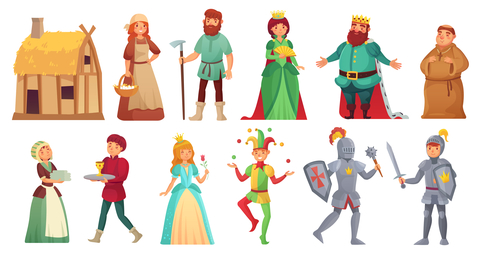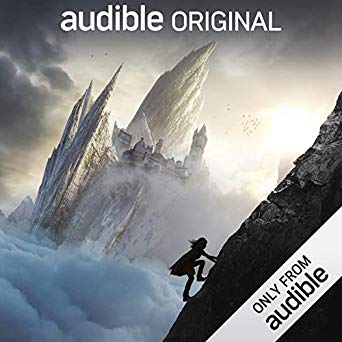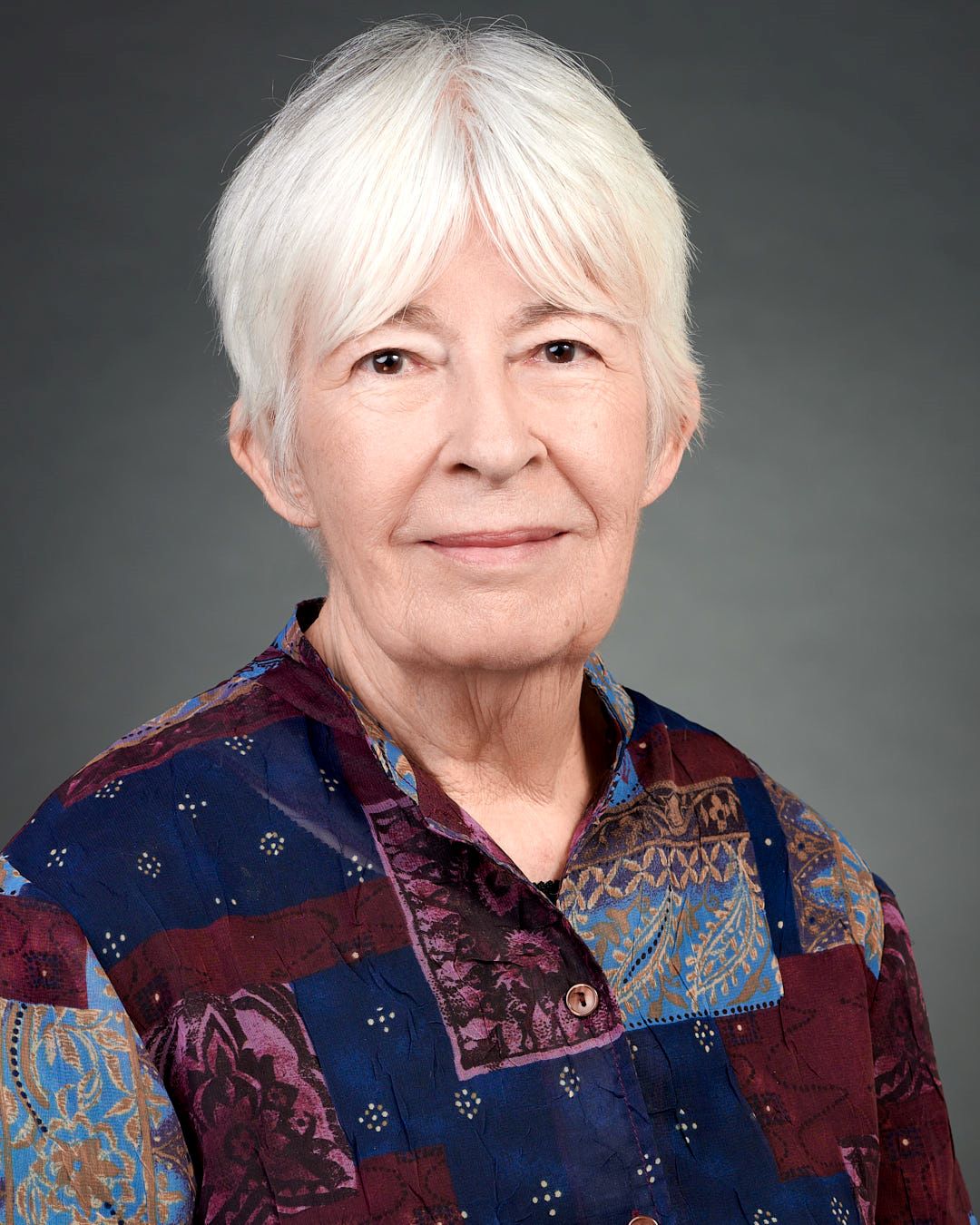What’s in a Name? Naming Characters in Historical Fantasy
By Juliet Marillier | March 13, 2019 |

I had fun today making a voice recording of the character names for my forthcoming audiobook, Beautiful, which is based on the Nordic fairy tale East of the Sun and West of the Moon. This was to assist the narrator, who will be recording the book this month. As I got my tongue around Bjalta, Gudolf and Solvej, I decided the topic of character names deserved a revisit. As a writer of historical fantasy, I love to discover or create names that will not only suit individual characters, but will be appropriate to the world and culture of the story. Naming your characters well helps you to create the consistent, convincing world all fantasy writers strive for – the world that your reader can believe in from the first page.
Of course, clever naming enhances any genre of fiction. How could Gabriel Oak be anything but trustworthy, a man close to nature? Bathsheba Everdene suggests an unconventional, strong-minded woman – perhaps Katniss Everdeen shares some of her characteristics. Wackford Squeers is a sadistic man, Philip Pirrip (Pip for short) is an innocent. And what about Severus Snape, Albus Dumbledore, Luna Lovegood and countless other characters from the Harry Potter books? The naming style used by Dickens and Hardy suits J K Rowling’s fantasy well, providing consistency and humour.
When you’re writing historical fantasy, by which I mean either a story set in real world history but with supernatural elements, or a story set in an invented world that is based on a ‘real world’ period and culture, effective naming starts with a knowledge and love of your historical period (or the implied period.) Sure, you’re not writing a history book or even historical fiction, you’re playing with history. But that doesn’t mean anything goes. Newbie writers sometimes mix periods, cultures and languages freely when creating their world, and that can create jarring notes for the reader. A solid knowledge of your historical period and culture, including an understanding of language and naming, will help you to build a convincing world complete with whatever magical elements your imagination chooses to weave in. Hands up who’s been guilty of giving a character an anachronistic name? I’ve done that, but I won’t do it again. Remember the golden rule for fantasy writers: your world should be internally consistent. Names should match the implied period and culture. If you choose to depart from that, make sure you do so consistently and for a reason that makes sense within the rules of your world. The reader needs to know you’ve done it by choice, not sloppiness.
But wait, I hear you say. Isn’t this rather a rigid approach? Most readers won’t care about all this. They just want to be entertained.
True in part. But excellent world building is key to excellent fantasy writing, and great names are a vital part of your world building. You can’t write a compelling story without engaging characters, and a name is a significant part of a character. Without careful naming, you risk breaking that golden rule and creating an inconsistent world. That will jar with readers whether or not they know why. So get it right from the start. Don’t just write an OK book, write the most excellent book you can.
Inspiration for names can come from some unusual sources. Generally I set my books in real historical periods and real parts of the world, with uncanny elements based on the folk beliefs of the period and place. I research history and language before I name my characters.
Beautiful, which is now in production, presented a new challenge. The north wind features in the original fairy tale, which involves a white bear and a long trek to find the Troll Queen’s palace, which lies East of the Sun and West of the Moon. It’s pure fairy tale, full of magic, and does not belong to any particular period in history. The origins of that story told me my central character lived somewhere mountainous and snowy, similar to Norway or Finland. So I used some evocative Nordic names for characters: Hulde, Rune, Laerke. But my version of the story also has a cast of Hill Folk, non-human characters who live underground and are known for their clever building work. I decided their names should reflect their close relationship with the mountain in all its strength and its changing moods. Where did I go for inspiration? To the wonderful Landmarks by Robert MacFarlane, a book that hunts out and celebrates nature words that are in danger of being lost from our vocabulary. I found many words there that worked wonderfully as names, including those of a pair of intrepid brothers, Skord and Slaag. You’ll have to read Landmarks to find out what their names mean! I tried to choose words from a single geographical area – that way they have a consistent sound. The names are a little challenging for the audiobook narrator, hence the need for me to record them, but I’m sure she’ll do a wonderful job.
When an author does character names stylishly, it adds a whole additional layer of depth to the narrative. Some great examples in historical fantasy are Jacqueline Carey’s Kushiel’s Legacy series, set in what is and is not Renaissance Europe (this broadens to a wider geographical area in the later books), and Sebastien de Castell’s Greatcoats series, set in an invented world but deliberately evocative of Alexandre Dumas’ The Three Musketeers. Both authors create names that are not quite Italian, or not quite French, or not quite something else, but which are entirely convincing in their context. It’s always clear which linguistic group they belong to, and, more importantly, the names suit the characters. Not actually so easy, especially when you’re dealing with a huge cast over a four or six book series. Bravo!
I know there are many fantasy writers in the Writer Unboxed community. I’d love to hear how you go about naming your characters (and by extension, places.) Are you careful to keep names consistent, and if so how do you do it? Do you choose names for their meaning, for their sound, or for some other reason? Does a knowledge of languages other than English help you in your world building, including names? What are your favourite character names from fantasy?
Image credit: ID 130068519 © Tartilastock | Dreamstime.com











Juliet, your audiobook sounds wonderful! My story takes place in 1978 New Jersey in a town that really exists, but that I re-named to reflect my theme of respecting the natural world. The magical elements draw from the Irish cycle tales, so names and incantations and comes from Irish Gaelic roots. The challenge has been with the real-world teenagers, finding names to reflect their inner selves! I grew up on Tolkien and have always loved his characters’ names, but not until I learned about his deep love of Norse mythology did many of them make sense to me. Thank you for an inspiring post this morning!
Your story sounds fascinating, Susan! Naming 1978 teenagers in a way that reflects when (early 1960s) and where they were born while being true to their inner selves would present quite a challenge. Their birth dates would sit between the conservative post-war period and the hippie era. I’d be interested to know what names you gave them.
Juliet, you nailed it. I set the story here because of the cultural changes these kids are moving toward . The main character, Cassie McCool, has a surname that reflects an ancient Irish hero. Her best friend, Myra Cohen, mystical and artistic, comes from a Brooklyn Jewish family who ends up in a town with a german farm-folk heritage. There are others, but these two form the backbone of the first novel.
Names … an endless story! I absolutely agree that names are important and should be chosen with care. I write speculative fiction, my WIP is set on a different planet (although very similar to Earth in most respects), so I have the pleasure of making up my own names. It is something I very much enjoy – I go by sound mainly. My hero introduced himself to me with name and all, lucky me. For the rest I try to “feel” what they are called. Sometimes it takes longer, sometimes the right name comes to me in an instant. There is no hidden meaning in them, but I do hope the sound fits the person. Sometimes I use a name common on Earth, but spelled differently.
That sounds like an excellent, instinctive method. Going by sound probably means there’s good consistency between the names. How wonderful that your hero made his way into your thoughts with his own name all ready!
Such a fun topic, Juliet. I love the look and the sound of your names for Beautiful, and I think both the look and sound are important. The MacFarlane book looks like a goldmine—thanks for the tip.
Although I don’t speak it (few do, since it’s a dead language), I did quite a bit of research into the Gothic language. It’s surprisingly similar to Old English (closer sounding to modern English than modern German). I also used names to convey a flavor for the various subgroups of my story-world. Since it’s based on the Black Sea Region at the time of the decline of the Roman Empire, I used names that correspond to my characters’ backgrounds, utilizing Gothic, Greek, Latin, and Old Persian. I had so much fun with names, I ended up not only naming people and places, but a few swords and at least a dozen horses!
I did do a bit of mixing and matching with some of my Gothic characters. I wanted a more Nordic flair, so I swiped sounds from both Old Norse and Old English. For example, for my primary protagonist, I wanted his name to convey that he was the son of a chieftain—one for whom his clan has high hopes. His name is Vahldan. With the first part I hope to imply ‘valor’ (the ‘h’ is for pronunciation guidance, and for flair). ‘Dan’ is actually an Old English honorific (roughly equivalent to ‘sir’), but I liked the look and sound of it better than the Gothic equivalent, which would probably be ‘ric’ (as in Alaric: ‘leader/king of all’; or Theudaric: ‘leader/king of the people’). I did use ‘ric’ for his nephew, Rohdric (or ‘hearty/robust leader’).
So while I totally agree with you about internal consistency and doing your research, I took liberties that I hope readers won’t find jarring. We are, after all, the gods of our own story-worlds, right? Fingers crossed!
Thanks for the tips and reminders. Wishing you the best with Beautiful!
Vaughn, I was thinking of you and the Goths when I wrote this! Your approach is truly scholarly, therefore it’s great to hear that it is also fun to do. I forgot to include horse and dog names in my discussion – my protagonist in Beautiful acquires a couple of animal companions, and their names (given to them by the Hill Folk) are also obscure nature terms from Robert MacFarlane’s book, selected to suit their appearance. I should probably write Mr MacFarlane a thank you letter.
I think liberties are absolutely fine when you’ve done the research first. I take quite a few with my Irish books – I have to since the stories have outgrown their history.
PS one of my children has a name ending in ‘ric’.
I too think names are important and often “try on” different names for major characters. My go to source is the Character-Naming Sourcebook. It organizes names by culture/country and also includes the meanings of names, which is an important consideration for me when selecting names. Thanks for the tip about Landmark. Definitely one I will want to add to my collection.
Anne, that sounds like such a useful reference that I’ll share a link to it here:
https://www.sherrilynkenyon.com/book/character-naming-sourcebook/
Landmarks is a wonderful book, as are the author’s others – an absorbing read for anyone who loves nature, history and/or language. It does focus entirely on the British Isles, but of course that takes in words brought in from many different cultures.
I’m also writing a historical fantasy series, with the first book set in medieval Wales and Denmark. Most of my names come from lists of names in historical documents. I agree, keeping to one geographical area can really help with consistency.
Although you didn’t mention it in this article, I also used local languages for place names. I love The Great Gatsby, so my main character’s village, Orllewinol, is from “West Egg” in Welsh:
wy gorllewinol. My favorite town name, however, is Llearhap – which is from the Welsh lle ar hap, which means “random place.” I don’t think anyone will ever pick up on these little details, but I enjoy putting them in.
Excellent! And those little details will one day be picked up by an astute Welsh-speaking reader, who will smile with delight!
I wonder how many readers will pronounce those names with a proper Welsh ”ll”?
Oo, I love choosing names! For Restoration Day, a novel with ecological themes, I chose a lot of plant and flower names, with reference to the old Victorian language of flowers. Lily, Hortensia, Darnel, Basil… A few of the meanings are given in the book, but for the most part it was purely for my own satisfaction.
Mind you, I also got heat from one reviewer for changing the names of the days and months – but why would a fantasy world have the same names we do, based as they are on the history and mythology of this world?
I like the sound of Restoration Day, Deborah. As for the reviewer, that does seem an odd thing to take issue with if the world of the book is obviously an invented one, even if it does have some elements in common with ours. But you can’t please every reader.
This topic is potentially very broad – not only character names, but animal names, place names, and plant names ….
I wrote a book set in 3500BC. Don’t know how I got the names, Oulma and Aarlak. Messed around with words I guess. the wolf Kekoh, from memory I took from a real wolf I sponsored. The dogs, Dogstew and Denog were the names of dogs I loved and wrote into the narrative as a memorial. Probably too many vowels as ancient languages had few. I reasoned that ancient people would call thier dogs similare names as they experienced their cannine personalities. Voice of the Earth, if you are interested.I have done nothing to promote this book as it is beyond me. Regards, Antoina Staff
I can imagine there were lots of challenges in writing a novel set in such an early period – not only making up names that were consistent and convincing but also working out how the human characters would interact, and making sure you weren’t imposing values and ideas that were too contemporary (while still engaging today’s readers.) Nice to work in the names of beloved real dogs – some of my dog characters are based on real dogs too, but I can’t use their real names as none are OK for the period. Thanks for letting us know about your book, Antonia.
Sounds like an awesome book.
I wish you many sales on your new release.
Janice~
So you know any children’s stories which use the name Sonja?
Offhand, no, but I expect there are some – it is a fairly well known name in Scandinavian countries.